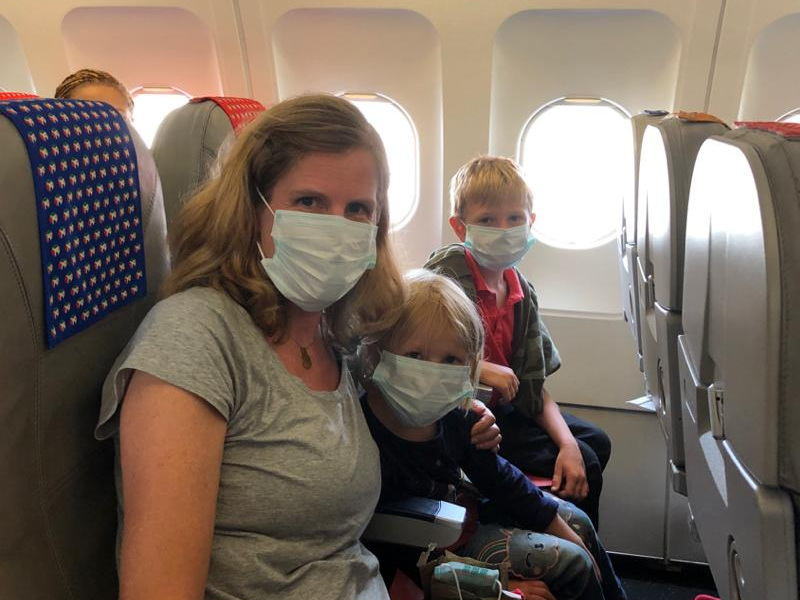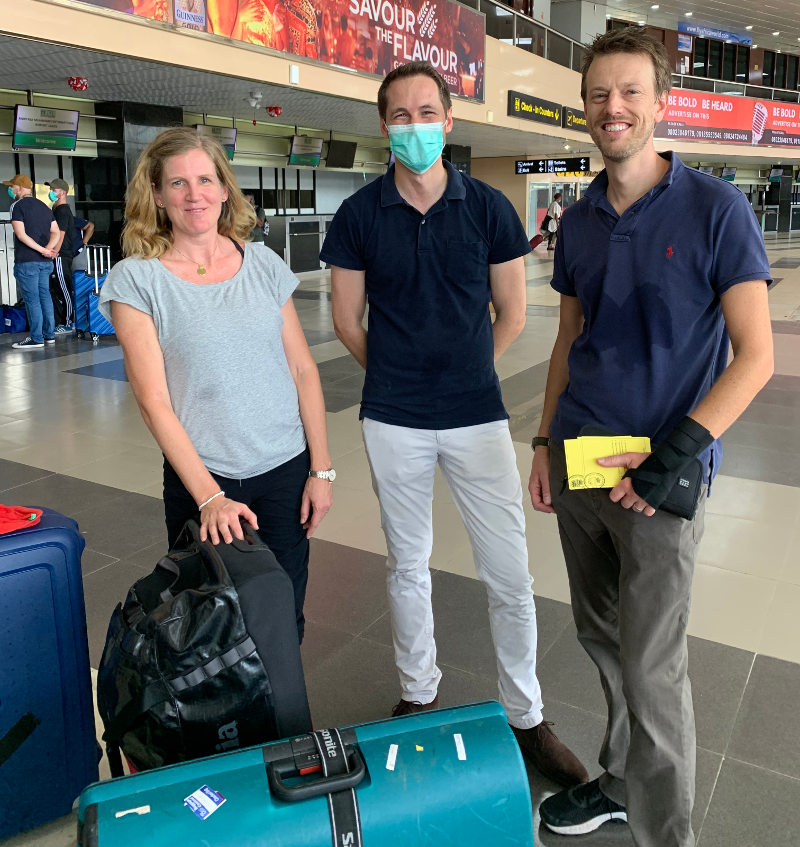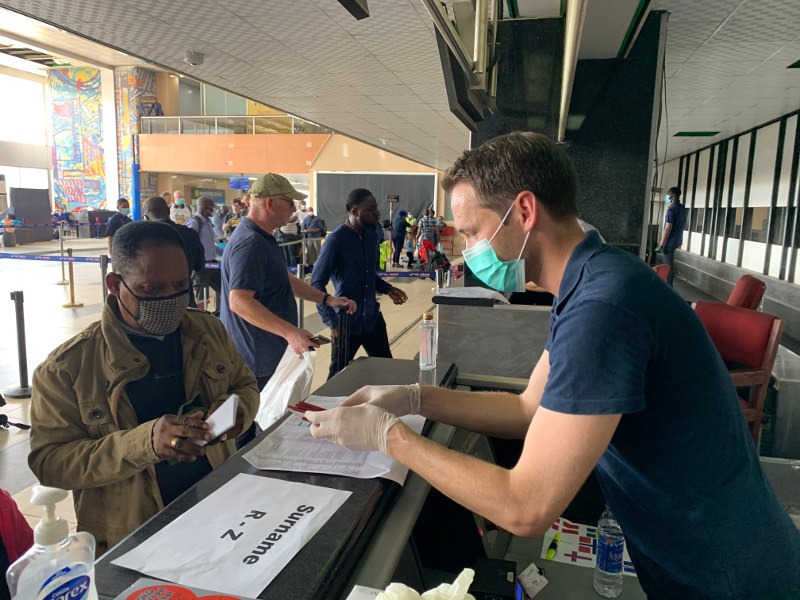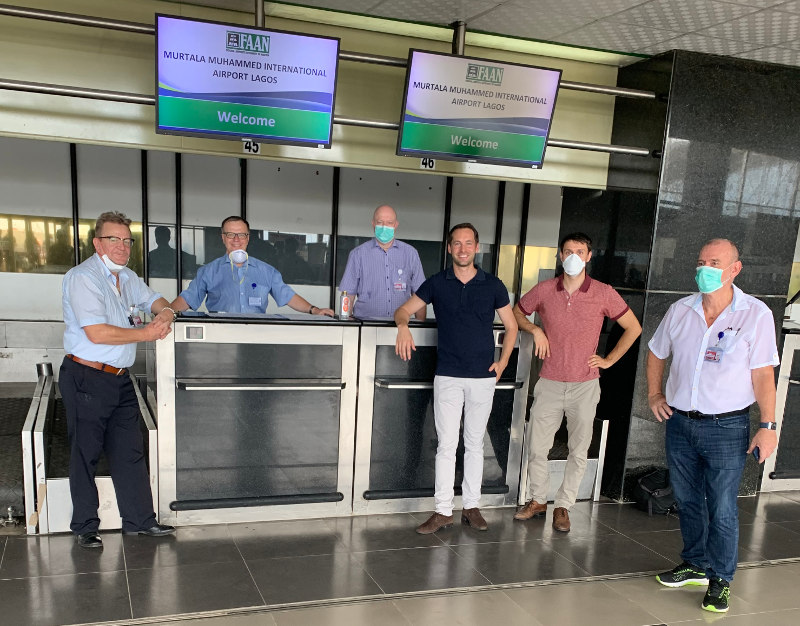
Repatriation flights are on the rise with many citizens anxiously waiting to return home from their travel destinations. Our very own Country Manager of Travelstart Nigeria, Philip Akesson, a Swedish National, assisted the Swedish Embassy and representatives from consulates of the Nordic countries in getting 175 stranded Nordic citizens home.
We chatted to Philip about his personal experience with repatriation flights. Here’s what he had to say:

Travelstart: What was your experience like?
Philip: I was asked to assist at the airport to ensure that each passenger had the necessary documentation and to check them in for their flight. Since the usual airport staff were not on duty, it was up to the countries’ consulates and airline crew to carry out these tasks.
This repatriation flight was a very successful collaboration between the Nordic countries. They all worked together to secure a chartered plane for their citizens and residents. Personally, it was a nice experience to be part of the collaboration and a great example of how countries can come together and solve challenges in difficult times!
Travelstart: Who is responsible for organising repatriation flights?
Philip: Repatriation flights are most often initiated by the home countries. To gauge the demand, embassies in the respective countries ask their citizens, as well as residents, to complete an online form if they’re interested in travelling back home. Government and embassy officials at home and abroad then work closely with the airlines and local authorities to gain the necessary approvals for a repatriation flight.
Travelstart: How does the process unfold?
Philip: The process can differ depending on the countries involved and the reason for why there is a demand for a repatriation flight in the first place. It’s also important to mention that repatriation flights are different from evacuation flights. For many repatriation flights during COVID-19 in Nigeria, this is how the process has unfolded:
- The embassy of the respective countries sends a notification to its citizens asking who’s interested in being repatriated.
- Based on demand, the foreign ministry of the home country then contacts airlines and/or travel companies who can help facilitate a repatriation flight.
- Once a flight has been scheduled, the travel date and other terms are communicated to the stranded citizens. Since there are often a limited number of seats available, certain groups such as the elderly or those with medical or other needs are often prioritized.
- The local embassy seeks approval from the departing country for landing permits and ensures that any other requirements are met.
- The embassies or travel companies involved typically send a link to book and pay to the prioritized passengers first. Remaining seats are then opened up to other travellers.
Travelstart: Is there a lot of paperwork to fill out?
Philip: Additional paperwork is often required. In the case of our current COVID-19 situation, the embassies typically help out with documents stating that you are scheduled on a repatriation flight. This makes it easier to clear police checkpoints and get to the airport. If possible, the embassies can assist in getting passengers to the airport.
At the check-in counter, you might need to show evidence of citizenship, residence permit, hotel reservations or proof of onward journey to your end destination. The documents needed depend on the immigration requirements of the arrival country. For example, if you book a flight to London but your end destination is Germany, it’s important to confirm what immigration rules apply in the UK during COVID-19 to ensure that you will be allowed to board your flight to London.

Travelstart: How soon can you be repatriated after submitting an application?
Philip: There are many factors at play. The demand for a repatriation flight partly determines what options are commercially viable for the airlines and, also, how actively each country’s government initiates the repatriation. Additionally, these flights require permissions from the country of departure. All of this can take some time.
Travelstart: How much does a repatriation flight cost?
Philip: The price of the ticket varies greatly but I’ve heard that a common benchmark is around the normal price of Premium Economy. It’s important to note that the price the airline sets needs to be commercially viable which depends on a range of factors. These planes often fly without paying passengers one leg of the trip and during COVID-19 middle seats are often left empty. In addition, the cost of the crew may be higher than normal due to the increased risk, etc.
With that said, I’ve heard rumours that the repatriation flight to Canada cost around ₦2,000,000 whereas a flight scheduled to London in early May is expected to cost just over ₦200,000.
Travelstart: Does travel insurance cover repatriation?
Philip: There is no standard answer as this depends completely on the insurance policy you have taken out. Given the global scale of this situation, many insurance companies may try to reduce their risk exposure.
Travelstart: Which type of aircraft or airlines offer repatriation services?
Philip: It’s important to remember that repatriation flights are paid for by the passengers and they need to be commercially viable for the airlines. The number of passengers, distance travelled, and other factors mentioned above determine which airlines can offer their services and which of their aircraft would be most suitable. Carriers ranging from the global giants to lesser-known charter airlines have carried out repatriation flights from Nigeria.

And there you have repatriation flights explained. Do you have any other questions regarding travel during COVID-19 or how to stay safe? Head on over to our Travel Safe page for all the latest updates.
And remember, we will fly again soon. For now, stay strong.

All information on this blog page was correct at the time of publishing and may change at any time without prior notice. Travelstart will not be held liable for loss or inconvenience resulting from the use of out-dated or incorrectly noted information.

